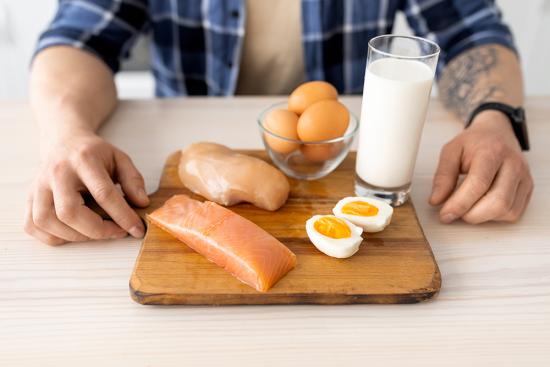
As a health coach, I often encounter individuals who strive to improve their physical fitness but overlook a critical component of their nutrition: protein. Protein is not just another nutrient; it is the cornerstone of muscle repair, growth, and overall bodily function. Integrating more protein into your diet can significantly enhance your fitness journey, offering a myriad of benefits that go beyond just muscle building. Let's delve into why protein is vital and how it can transform your physical fitness.
The Building Blocks of Life
Proteins are composed of amino acids, which are often referred to as the building blocks of life. These amino acids are crucial for repairing tissues, producing enzymes and hormones, and supporting a healthy immune system. For those engaging in regular physical activity, the demand for protein increases as the body needs more resources to repair and build muscle tissues that are broken down during exercise.
Muscle Repair and Growth
One of the most well-known benefits of protein is its role in muscle repair and growth. When you exercise, especially during resistance training or high-intensity workouts, your muscle fibers experience microscopic tears. Protein helps to repair these tears, making your muscles stronger and more resilient. Consuming an adequate amount of protein post-workout can enhance recovery, reduce muscle soreness, and promote muscle hypertrophy (growth).
Enhancing Metabolic Rate
Protein has a higher thermic effect of food (TEF) compared to carbohydrates and fats. This means that your body burns more calories digesting and metabolizing protein than it does with other macronutrients. By increasing your protein intake, you can boost your metabolic rate, which can aid in weight management and fat loss. This is particularly beneficial for those looking to improve their body composition by reducing fat mass and increasing lean muscle mass.
Sustained Energy Levels
Protein contributes to sustained energy levels throughout the day. Unlike carbohydrates, which can cause spikes and crashes in blood sugar levels, protein provides a steady source of energy. This helps to prevent the mid-afternoon slump and keeps you feeling fuller for longer, reducing the temptation to snack on unhealthy options. Incorporating protein into every meal can help stabilize your energy levels, making it easier to stick to your fitness goals.
Improved Strength and Performance
For athletes and fitness enthusiasts, protein is essential for optimizing performance. Adequate protein intake supports strength gains and enhances overall athletic performance. It helps in the production of hemoglobin, which transports oxygen to your muscles during exercise. This increased oxygen delivery can improve endurance and stamina, allowing you to train harder and longer.
Practical Tips to Increase Protein Intake
- Incorporate Protein-Rich Foods: Include a variety of protein-rich foods in your diet, such as lean meats, poultry, fish, eggs, dairy products, legumes, nuts, and seeds. Plant-based options like quinoa, tofu, and tempeh are also excellent sources of protein.
- Protein with Every Meal: Aim to include a source of protein in every meal and snack. This could be as simple as adding Greek yogurt to your breakfast, a handful of nuts to your afternoon snack, or grilled chicken to your salad.
- Protein Supplements: If you're struggling to meet your protein needs through food alone, consider protein supplements like whey or plant-based protein powders. These can be easily added to smoothies, oatmeal, or even baked goods.
- Balanced Meals: Ensure that your meals are balanced with a combination of protein, healthy fats, and complex carbohydrates. This will not only provide you with sustained energy but also ensure that you're getting a well-rounded intake of essential nutrients.
- Plan Ahead: Prepare protein-rich snacks and meals in advance to avoid reaching for less nutritious options when you're hungry. Hard-boiled eggs, protein bars, and pre-cooked chicken breasts are convenient choices that can be easily grabbed on the go.
Conclusion
Incorporating more protein into your diet is a simple yet powerful way to enhance your physical fitness. By supporting muscle repair and growth, boosting your metabolic rate, sustaining energy levels, and improving overall strength and performance, protein plays a vital role in helping you achieve your fitness goals. As your health coach, I encourage you to evaluate your current protein intake and make conscious efforts to include more protein-rich foods in your diet. Your body will thank you, and you'll see the results in your improved fitness and well-being.
To learn more about the importance of protein and how to incorporate into your diet, register for the four-week series Power of Protein: Fueling Your Body for Success starting on November 7 at 11:30 a.m. OSU Health Plan Health Coach Jessica will dive into the vital role protein plays in our bodies, from muscle growth and repair to overall health and wellness.
